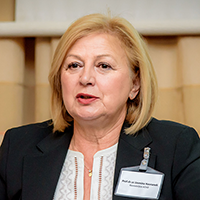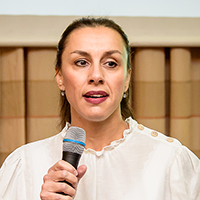The Croatian Qualifications Framework: a Reform Instrument for the Educational System

The Croatian Qualifications Framework (CROQF) is a reform instrument for regulating the system of qualifications at all levels in the Republic of Croatia through the qualifications standards based on learning outcomes and needs of the labor market, individuals, and society.
The Croatian Qualifications Framework (CROQF) is a framework which sets every qualification acquired in Croatia at its place. The central elements of CROQF are learning outcomes or, in other terms, competences acquired by an individual through the learning process, which is not crucial as itself, while the learning outcome being assessed. The implementation of a competence approach and the focus on learning outcomes make up the new approach that changes the current planning and programming of the education process and presents the basis for the introduction of every qualification. The approach based on the learning outcomes implies that individuals can prove that they possess certain competences (knowledge, skills, etc.)

The placement of qualifications acquired in Croatia at the respective levels determines their relation to the levels of the European Qualifications Framework (EQF) and the levels of the Qualifications Framework of the European Higher Education Area (QF-EHEA). It makes the correspondence between the Croatian qualifications levels and the EQF and QF-EHEA levels obvious, thus ensuring the visibility of qualifications acquired in Croatia in the Croatian and European labor markets.
Since the central elements of CROQF are the learning outcomes, and not the way in which they were acquired, CROQF sets a basis for the development of recognition of prior learning (RPL) or, in other words, enables us to develop a system of recognition and validation of non-formal and informal learning along with the compulsory introduction of a quality assurance system and clear quality assessment procedures.

Jasmina Havranek, Professor, PhD, Director of the Agency for Science and Higher Education (ASHE)
For most of her professional life, Prof. Havranek has been promoting importance of quality standards and culture and raising awareness about the importance and improvement of public policies in science and higher education.
In the period of 2003-2005, she was President of the National Council for Higher Education of the Republic of Croatia, and in 2007 was appointed Head of the Croatian Agency for Science and Higher Education. Prof. Havranek participated in numerous national and international conferences that covered topics of higher education and science, and also was an invited lecturer.
CROQF introduces qualifications standards. While the same qualification can be acquired at different educational institutions and through different educational programs, there are certain standards in terms of defined learning outcomes that a qualification should include. Educational programs need to be in line with the qualification standards which would mean that they lead to the acquirement of learning outcomes that are specified by a respective qualification standard.
Apart from the qualification standards, CROQF introduces occupational standards that clearly define the competences required for a certain occupation. The Republic of Croatia is in the process of developing the occupational standards (in cooperation with the labor market representatives and competent bodies) and the related qualification standards. Standards are produced through a clearly prescribed methodology and collected data by which the competences for a certain occupation have been defined and analysed.
Evaluation of study programs in light of the Croatian Qualifications Framework
Over the past ten years a significant step forward has been made in the development of the system of external quality assurance for higher education in Croatia. Formal alignment of study programs with the Bologna principles was carried out, the first cycle of reaccreditation was conducted for all higher education institutions in Croatia, and the foundations for the implementation of the Croatian Qualifications Framework were established.

In the further development of that system, the Agency for Science and Higher Education (ASHE), an independent agency responsible for conducting external quality assurance procedures for higher education and science in the Republic of Croatia, improves the model of initial accreditation and reaccreditation of higher education institutions. The Agency particularly focuses on external evaluation of study programs on the basis of the experience from the first cycle of reaccreditation, international trends and examples of good practice and also creates a system of the evaluation of study programs for entry into the CROQF Register.
The previous model of the initial accreditation and reaccreditation, which was coordinated by ASHE, was largely based on the entry parameters and processes, however in the forthcoming period a greater emphasis will be made on the planned and established learning outcomes. This is a common sequence in the development of an external quality assurance system that many other countries have also passed through.

Silvija Vrgoč, Public Relations Specialist
Silvija Vrgoč is a member of the ASHE public relations team. The focus of her work is development of communication strategies, updating the web, editing newsletters and publications for the Agency and organizing events.
External evaluation for the entry of study programs into the CROQF Register relies entirely on learning outcomes as they are also the starting point for reforming, particularly, improving the study programs as well as for refining the model of the external evaluation of study programs. In order for learning outcomes to truly be the starting point for the mentioned improvements, it is necessary that their elaboration is approached in a complete and comprehensive way consisting of more than their well-developed and clear formulation. It is important to take into account the standpoints and expertise of all stakeholders, and also to ensure a good dialogue within the higher education institutions themselves. This also implies considering learning outcomes not only as an instrument but as a concept that will allow for a clearer understanding of what the student needs to know and what can be achieved after successful completion of the study program.
All the past evaluations, including the Bologna reform of study programs and the first cycle of reaccreditation of higher education institutions, have been based solely on the peer review assessment without a strong orientation on the planned, particularly established learning outcomes. The concept of learning outcomes, once it is developed, should be used not only for the evaluation of study programs for the entry into the CROQF Register and for obtaining the label of quality from CROQF, but also as an indispensable element in accreditation. Some of the foreign agencies that have made progress towards the evaluation of learning outcomes use exactly such national standards in the qualifications framework in their evaluations, according to CHE Consult (2014).
